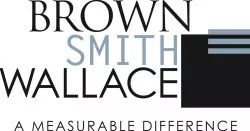The Democratic and Republican nominating conventions triggered an early recess for Congress. Lawmakers left Capitol Hill in mid-July and are not scheduled to return until September. Before recessing, the House voted to undo part of the Affordable Care Act (ACA) and approved a reduced budget for the IRS. Leading tax writers in the Senate addressed tax-related identity theft and home buying incentives.
ACA
Before passage of the ACA, taxpayers could use health flexible spending arrangement (health FSA) dollars to pay for over-the-counter medications. The ACA abolished this treatment, leaving health FSA funds for the purchase of prescribed medications with some exceptions. Regularly, bills have been introduced in Congress to go back to the pre-ACA rules for health FSAs, but the bills have failed to pass.
However, in July of this year, the House approved the Restoring Access to Medication and Improving Health Savings Bill of 2016 (HR 1270). The bill would repeal the prohibition on using health FSA dollars to pay for over-the-counter medication. The repeal would apply to qualified expenditures incurred after December 31, 2016. The Senate did not take up the bill before recessing.
Tax-Related Identity Theft
Tax-related identity theft continues to plague the IRS. The agency has spent significant sums on identifying false returns before fraudulent refunds are paid. In July, Sen. Orrin Hatch, R-Utah, chair of the Senate Finance Committee (SFC), introduced the Stolen Identity Refund Fraud Prevention Bill (Sen 3157). The bill would provide guidelines for the IRS in handling stolen identity refund fraud cases and would increase the criminal penalty for tax-related identity theft. "Protecting taxpayers from bad actors looking to use their identities for fraudulent purposes and enhancing overall taxpayer protections is a priority of the committee," Hatch said.
Homebuyers
Hatch's colleague on the SFC, Sen. Ron Wyden, D-Oregon, has introduced a bill to create a first-time homebuyer tax credit bill. Several years ago, Congress passed a similar bill to encourage home sales. Wyden's bill would reward qualified first-time homebuyers with a refundable credit. "The credit would equal 2.5 percent of the home purchase with the maximum credit reached at homes selling for $400,000," Wyden said. The credit would phase-out for higher income taxpayers.
IRS Budget
The IRS's operating budget continues to be a source of friction in Congress. President Obama and Congressional Democrats have called for increased funding for the agency for FY 2017. Congressional Republicans have proposed budget cuts to bring about, they argue, greater efficiency at the agency. The House approved in July a $10.9 billion IRS budget for FY 2017, more than $1 billion below President Obama's proposal. The Senate, however, did not take up the IRS's budget before recessing, although members of the Senate Appropriations Committee proposed keeping the agency's FY 2017 budget at current levels. In recent years, lawmakers have waited till year-end to approve a budget for the IRS and they may do the same this year, possibly in a year-end tax bill.
Olympic Winners
America's Olympic and Paralympic winners may benefit from a special tax break, if enacted into law. Before recessing, the Senate approved the Olympians and Paralympians Bill (Sen 2650). The bill provides that the value of any medals awarded in, or any prize money received from, competition in the Olympic or Paralympic Games would be exempt from income tax, beginning with the 2016 games. Similar legislation (the Tax Exemption for American Medalists (TEAM) Bill (HR 2628)) has been introduced in the House, but no vote has been scheduled.
If you have any questions about these tax bills, please contact your tax advisor or Allison Jasper, Manager, Tax Services, at 314.983.1276 or ajasper@bswllc.com.
The content of this article is intended to provide a general guide to the subject matter. Specialist advice should be sought about your specific circumstances.

